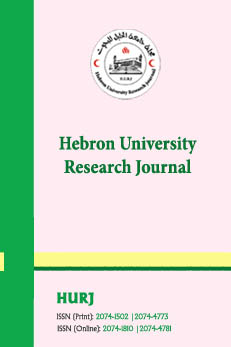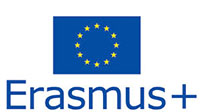News Archive
AUBMC hosts completion of this year's training of Palestinian health care professionals
For the sixth year, an on-the-job training of Palestinian health care professionals at the American University of Beirut Medical Center (AUBMC) took place during the last half of November (November 14-25), 2011.
The program had started in 2006 as a signed agreement between then AUB’s former President John Waterbury and Dr. Joseph Tamari, president of the Medical Welfare Trust Fund (MWTF), which was established by the late Hassib Sabagh in 1989 to provide health care support to Palestinians. Upon signing of the agreement, a committee was formed consisting of Dr. Ghazi Zaatari as chairman, Dr. George Araj as coordinator, and Professor Rima Afifi as member of the committee. This agreement was renewed with the signature of President Peter Dorman this year, 2011.
This year, two groups of health care professionals from the West Bank trained at the AUBMC facilities: Ten laboratory scientists and managers, along with 14 nurses from both governmental and non-governmental health care institutions. Coming from various health establishments in Tulkarm, Nablus, Ramallah, Bethlehem, Beit Jala, and Hebron, a total of 6 women and 18 men participated in clinical observations, attended lectures, and engaged in group discussions. The main focus for the trainees was to transfer to their staff back home knowledge acquired on different clinical hospital nursing services (e.g. emergency and other critical care units, surgical care, pediatric oncology, and operating room nursing care); tools of laboratory management; and service and quality improvement.
Laboratory scientists were trained on disciplines related to: laboratory management, quality control, hematology and coagulation, blood banking, and parasitology. Director of laboratories and blood banks at the Ministry of Health in the West Bank, also head of the training team, Watheq Jaber, said that “the team is very pleased to be at AUB. The university’s reputation as an educational institution and that of the AUBMC as a leading hospital are extremely good and they are renowned for doing meticulous work of high quality. This hospital laboratory is College of American Pathologists (CAP) accredited and satisfies all its strict requirements; which means the quality level of its work is very high. The staff here works according to written procedures that are scientifically organized and therefore scientifically lead to best results. Now that we have been closely introduced to this high-quality performance, we hope that we can apply such practices back home and succeed in raising the level of service and quality there.”
Nurse training included clinical observation at the hospital, followed by debriefing and case-discussion, as well as lectures presented at the Rafic Hariri School of Nursing by clinical practitioners. Some nurses were trained on ER and oncology in the pediatric department. From Hebron University, nurse educator Zeinab Thawabteh is a participant who hopes to later train students at her university on the knowledge acquired during this training workshop. Observing that all procedures and quality care at AUBMC are standardized and advanced, Zeinab added that previous groups that have trained within this program in the past years have contributed immensely to improvements in the healthcare system at the West Bank. She pointed out that each observation session is followed by a briefing session. In addition, a report is prepared at the end of the two week training and is submitted by the participants to their organizations to offer recommendations for similar implementation attempts in the West Bank. Once they return, these trainees become trainers of other trainees. Operation-room nurse, Ibrahim Al-Ghrouz said, “We hope to develop the system we have in the West bank based on what we have observed and learned here. We also hope to implement back home some of the international-standard methodology being used here to the extent that our capabilities there allow. We will make recommendations to acquire some of the tools needed as well." With the freedom to explore and select their desired observation sites, Al-Ghrouz remarked that he was able to observe operations that the staff normally only hear of in the West Bank, such as laparoscopy; a technology-based surgical procedure used at the AUBMC.
While endoscopic procedures are used for gall bladder removal in the West Bank, Ibrahim commended that at the AUBMC, advanced endoscopic techniques are being used for many types of surgeries. “Such proficiency requires highly trained medical staff and knowledge of the techniques needed in using the tools. Here we were introduced to much new information and we learned how and why strict adherence to international standards in each health procedure is important in improving the quality of nursing in patient care,” he added.
Dr. George Araj commented on the trainees’ feedback saying, “Such feedback enhances the sustainability of this program and makes all invested effort by the committee, REP staff, and the educators a worthy one. The MWTF program with AUB offers a unique opportunity that reflects and integrates what AUB can offer with what the communities within the region need. This agreement extends the services of AUB’s exemplary expertise to reach out and offer support in healthcare to where it is needed, beyond campus and Lebanese boundaries.”
Chairman of the Department of Pathology and Laboratory Medicine Dr. Ghazi Zaatari expressed his “great gratification with the accomplishments of this unique training program since its inception. It fulfills AUB’s mission in the region and it has been extremely rewarding to witness the contribution of this program in improving the quality of health care delivery in the region; particularly in a place which has been enduring serious hardships in gaining easy access to opportunities of continuing education and specialized training for its health care workers. We are determined to carry on with this program, in a coordinated fashion with local authorities in the West Bank, in order to maximize its benefits and outcomes over the coming few years. We are very thankful for the enthusiastic and wonderful support provided by AUBMC staff, as it has greatly facilitated this specialized training.”
|
Story Highlights |
|





